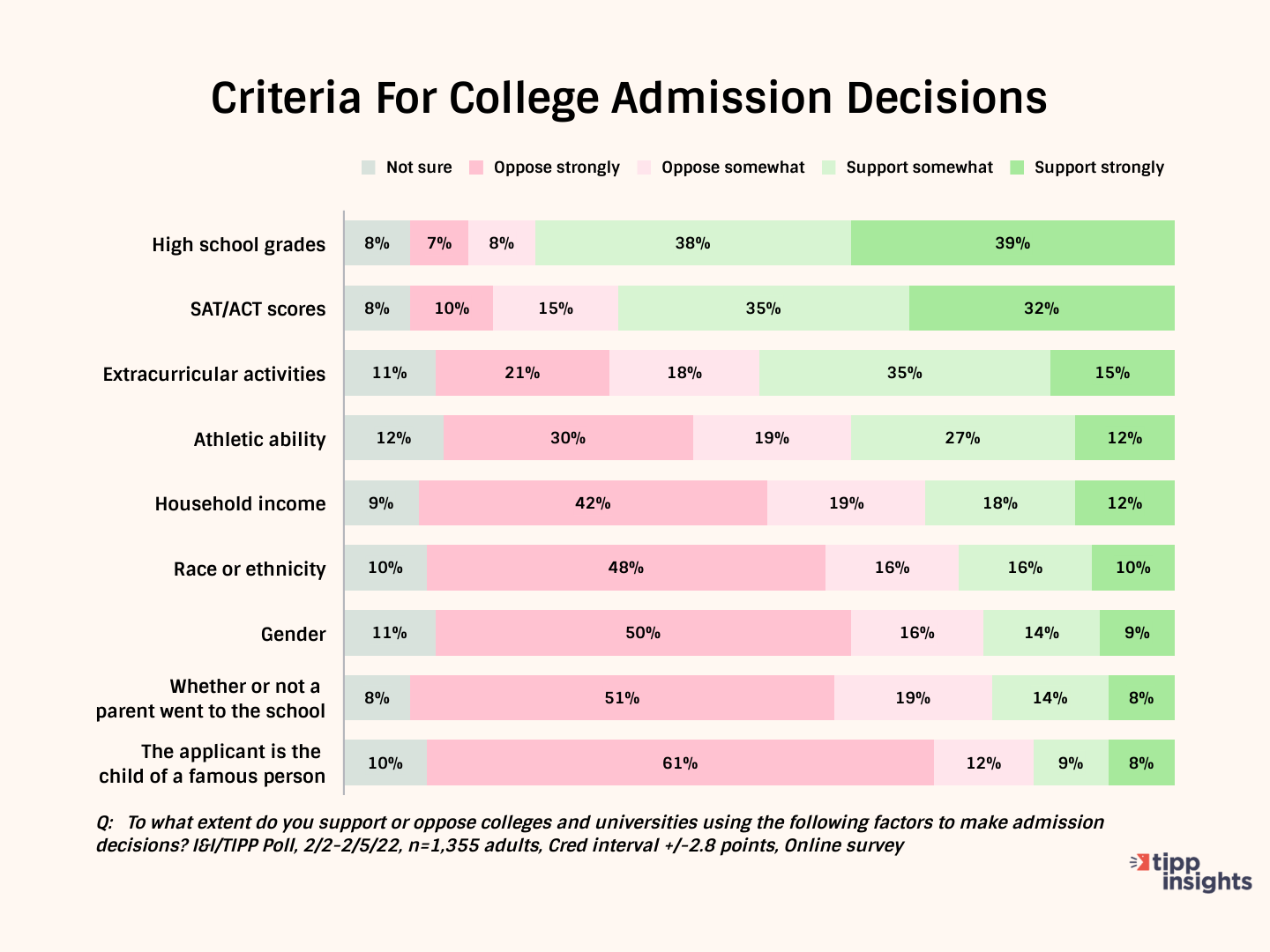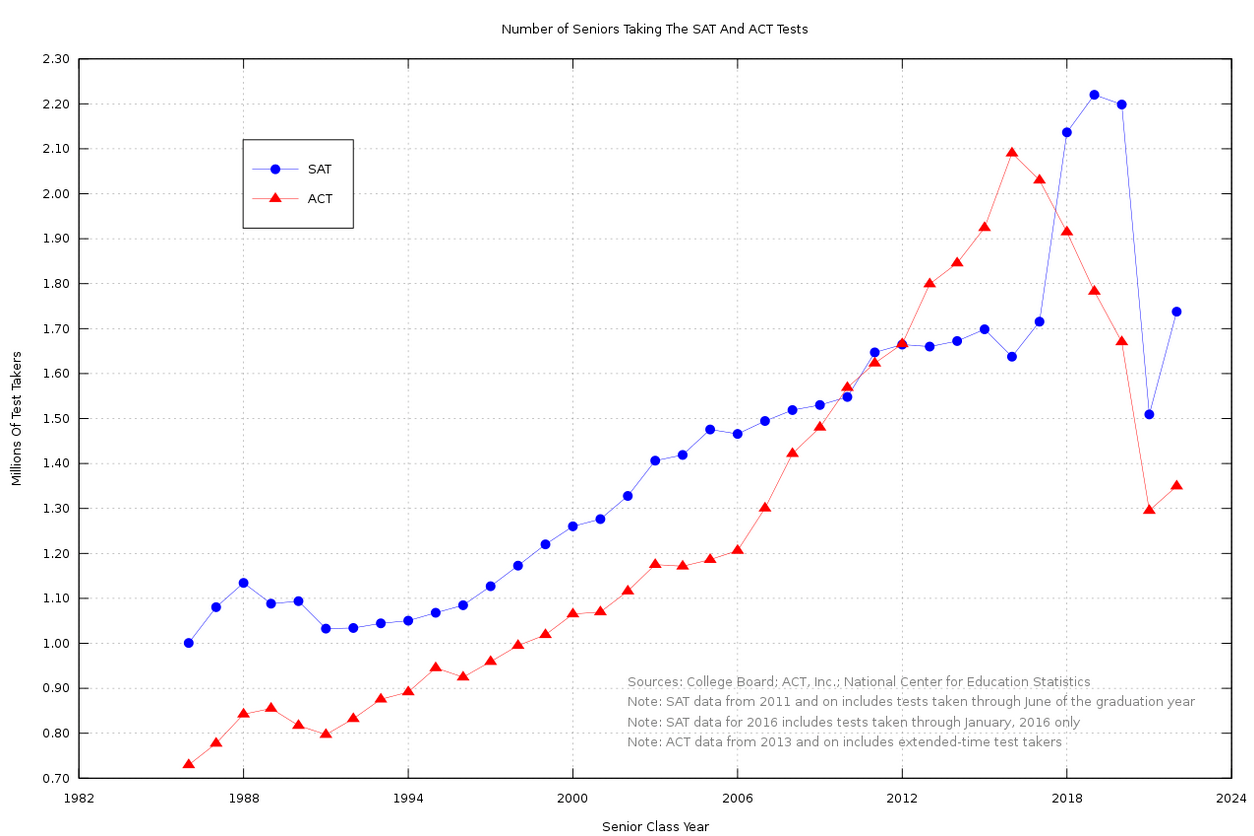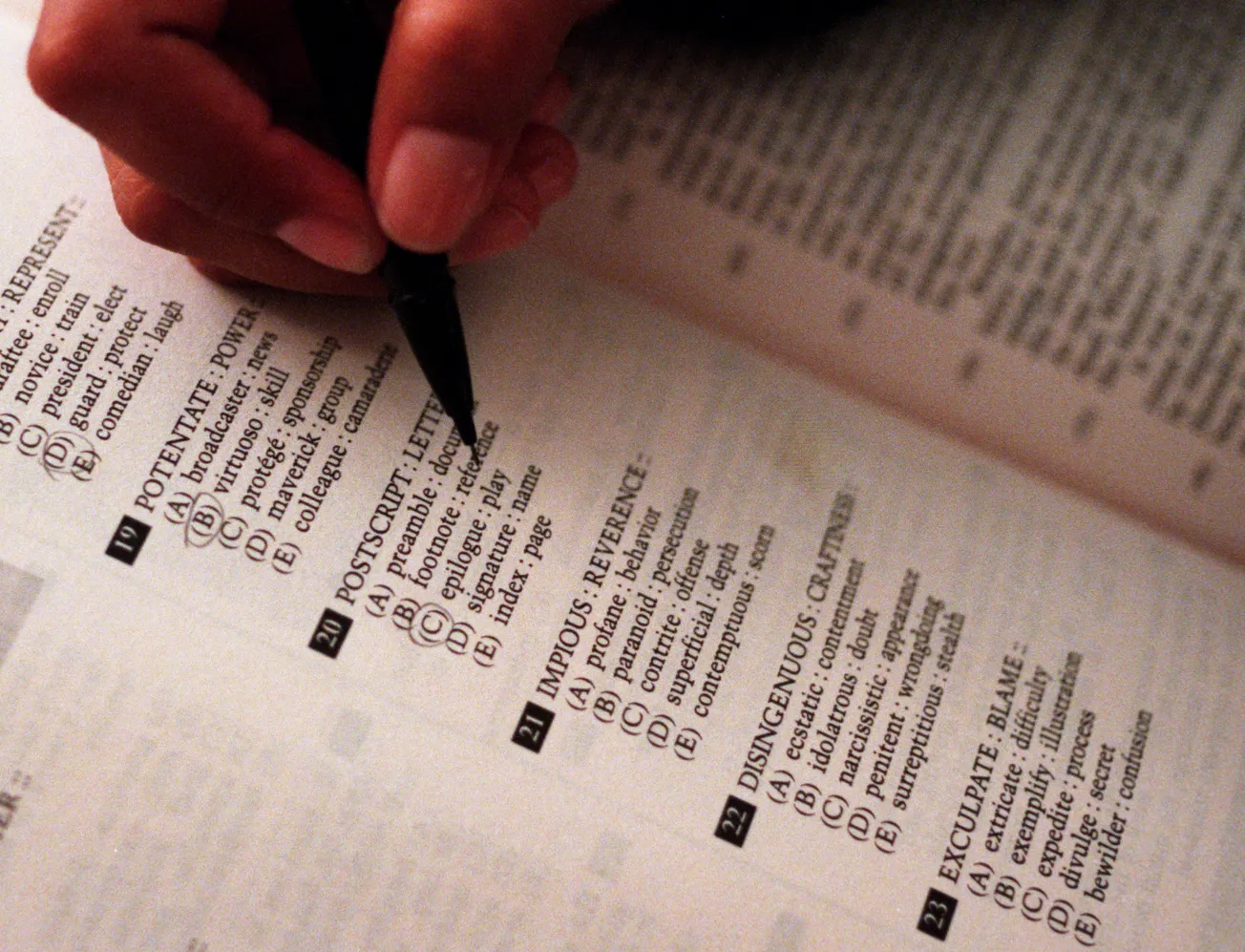In our recent editorial about race relations, we pointed out that after George Floyd, the Left attempted to push several policy initiatives that voters later rejected.
One organization that has proven extraordinarily successful is Fairtest which has pushed colleges and universities to go test-optional. Nearly 1,900 colleges no longer require students to submit their SAT/ACT scores during the application process. Fairtest insists that standardized tests are too flawed. Because some colleges use them as a vetting tool (students who do not meet a specific minimum score are automatically rejected), Fairtest says that the tests are being misused.
College admission decisions are not subject to voter review, but in our I&I/TIPP Poll in March 2022, American parents and prospective parents overwhelmingly said they wanted their children to face a merit-based admissions policy for colleges and universities, not one that is woke. Nearly 67% of respondents wanted "SAT/ACT scores" to be employed as an evaluating factor, directly contradicting Fairtest assertions.

The closest public action came in June when the United States Supreme Court agreed with the findings in our poll, ruling by a vote of 6-3 that affirmative action policies used by colleges are unconstitutional. The Court rebuked Harvard and other elite schools calling their admissions process "elusive," "opaque," and "imponderable." Chief Justice Roberts said that giving Black and Latino applicants an edge over white and Asian applicants in the name of diversity violated the equal protection clause of the Constitution's 14th Amendment.
The subject of test scores appeared prominently during the oral arguments, which pitted the merits of "objective" metrics of student evaluation vs. "subjective" metrics. Asian-American students generally have better objective metrics, such as grades and SAT/ACT scores. Subjective metrics - which Harvard testified arose from a wide range of valuable information in the application, such as an applicant's personal essays, responses to short answer questions, recommendations from teachers and guidance counselors, alumni interview reports, staff interviews, and any additional letters or information provided by the applicant - helped the college assign a so-called "personal rating" to students. Harvard scored Asian-Americans low in personal rating, but African-Americans received the highest personal rating, although Blacks scored the lowest academically.
In response to the Supreme Court's decision, the University of North Carolina, Chapel Hill, one of the defendants, announced this week that it would comply and no longer use race in student evaluation.
But schools have a compelling interest in promoting a diverse student body, so elite schools will likely eliminate the SAT/ACT as a metric altogether. Doing so gives colleges an added advantage. They can shield themselves from future lawsuits by making the whole evaluation process subjective. Organizations like Fairtest and others promoting social justice will justifiably take victory laps.
But eliminating the SAT/ACT would be a disastrous policy move. Harvard researchers released a paper recently that used millions of data points and advanced Big Data analysis. In a shout-out for test scores, the researchers said, "SAT/ACT scores and holistic academic ratings (which take test scores and other academic factors into account) are highly predictive of post-college outcomes."
If test scores are excellent predictors of post-college outcomes, would they not also be excellent predictors of performance in college? Across the river from Harvard, the good folks at MIT Admissions already know. The elite institution, which chose to go test-optional during the two pandemic years, announced in March 2022 that it would reinstate its requirement that applicants submit scores from an SAT or ACT exam.

The American Association of Medical Colleges, which tightly governs every aspect of American medical training, considered among the world's best, has not wavered and continues to keep the Medical College Admissions Test as a crucial evaluating factor in admitting medical college applicants. The MCAT is much more grueling than the SAT. Undergraduate students sit through a grueling 7½ hour ordeal and answer 230 questions on Biology, Chemistry, Physics, Math, Psychology, and Sociology. As far as we know, Fairtest is not campaigning to eliminate the MCAT because we suspect that when Fairtest staff enters a doctor's office, they want assurances that they will get treated by only the best-trained doctors.
Former President George W. Bush used the term "The soft bigotry of low expectations" to demonstrate that civil rights leaders often advocate for lower evaluation standards to help underprivileged minorities. Decades of Democratic administrations and billions spent on school systems have not budged the needle on student academic performance.
We noted in May that New York City students place in the bottom 42% of the global student population taking the SAT. Eliminating standardized tests for college admissions will not dramatically make these NYC students successful in college, work, and life. A better approach is to provide free testing resources to every student and challenge them to take the SAT. The confidence resulting from students realizing their full potential is far more critical than wondering if they got into college in the first place because of policies that were dumbed down.
Like our insights? Show your support by becoming a paid subscriber!









